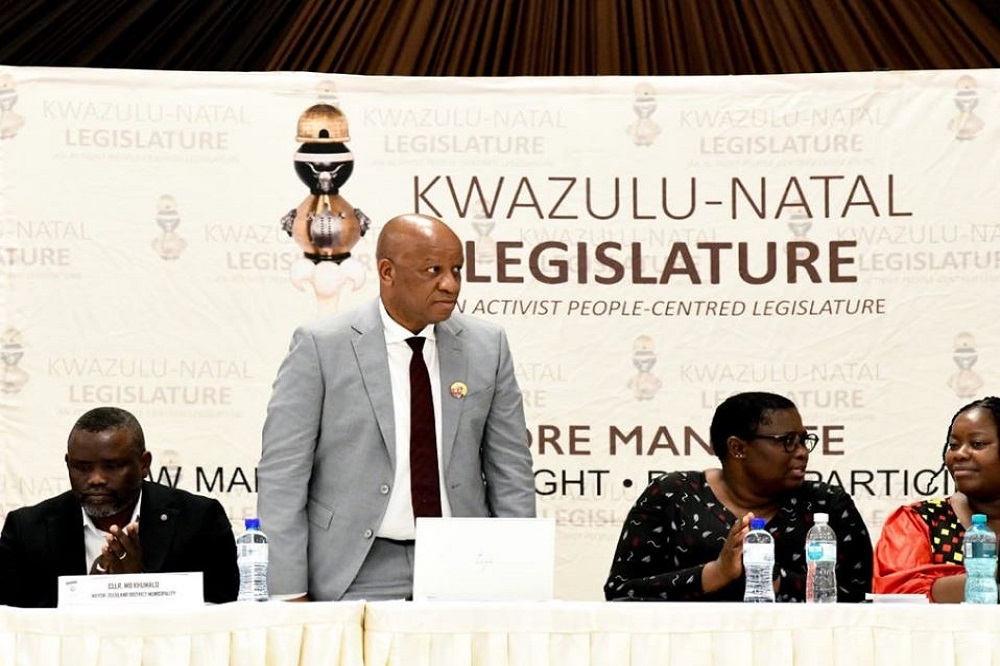-
UMkhonto weSizwe Party leader, Jacob Zuma
The Information Regulator South Africa (IRSA) says it has directed the South African Revenue Services (SARS) to release Former President Jacob Zuma’s tax records.
VIDEO | The Information Regulator South Africa says it has received a complaint against the South African Revenue Service in relation to the disclosure of former President Jacob Zuma’s tax records. pic.twitter.com/NDDxc0dlHI
— SABC News (@SABCNews) March 27, 2024
Last year, the Regulator received a complaint against SARS in relation to Zuma’s tax records. Following an investigation, the regulator has found that SARS was not justified in denying access to the requested records and directed that Zuma’s records be released to the requester.
The Regulator held a media briefing this week on the outcomes of its various investigations relating to the Protection of Information Act and the Promotion of Access to Information Act. The IRSA says it has conducted 80 own-initiative Promotion of Access to Information Act (PAIA) compliance assessments on public and private bodies.
These assessments are for the financial year 2024/25 in the PAIA division. The Regulator says in this period, it found that many bodies still fail to make PAIA manuals publicly accessible.
According to the Regulator, this is a criminal offence, which hinders the public’s right to information. The Information Regulator says it received a complaint against SARS last year relating to former President Jacob Zuma’s individual tax returns for the tax years 2010 to 2018 held by SARS.
It says following its investigation, it has directed SARS to release Zuma’s tax records.
RELATED VIDEO | Probe into disclosure of former President Zuma’s tax records
“We only issued the enforcement notice, yesterday. So, once the sources received the same, obviously they’ll acknowledge our receipt but the enforcement notice on the Thompson versus the former President Jacob Zuma was issued, yesterday,” says IRSA Advocate, Lebogang Stroom.
“The ConCourt made a decision about the constitutionality of the Income Tax Act. I think it’s section 37 and the 2 sections in PAIA, which is very important. Basically the principle that the ConCourt is saying, in South Africa there’s no such a thing as absolute prohibition. There’s nothing like there’s information that cannot be disclosed. There are certain circumstances which may warrant that such information can be disclosed. In this case of the former President, SARS was arguing that these are confidential tax records and they cannot be disclosed but the act is very clear that if there’s suspicion of the committing of crime, that information can be disclosed subject to certain protocols,” says IRSA part-time member, Mfana Gwala.
In another case, the Regulator says it has gone to court following the Department of Education’s failure to adhere to its Enforcement Notice regarding the publication of the annual matric results.
“The maximum fine that we have levied is R5 million against the DBE and against the Department of Justice. In both instances, the maximum fine that we can issue is R10 million. There is also something that I also want to explain that might not maybe be very clear, and that is in respect of PAIA where we have issued an enforcement notice in PAIA and if the enforcement notice is not complied with, the only recourse that we have is to open a criminal case against the information officer for public bodies. That is not enough. You can open the criminal case, but what happens to the information?,” says IRSA Chairperson, Pansy Tlakula.
The Regulator says the number of POPIA complaints has gone up by 34% in the 2024/25 financial year and it says it remains concerned with non-compliance by municipalities and TVET colleges in the country.
VIDEO | Information Regulator orders SARS to release Zuma’s tax records











